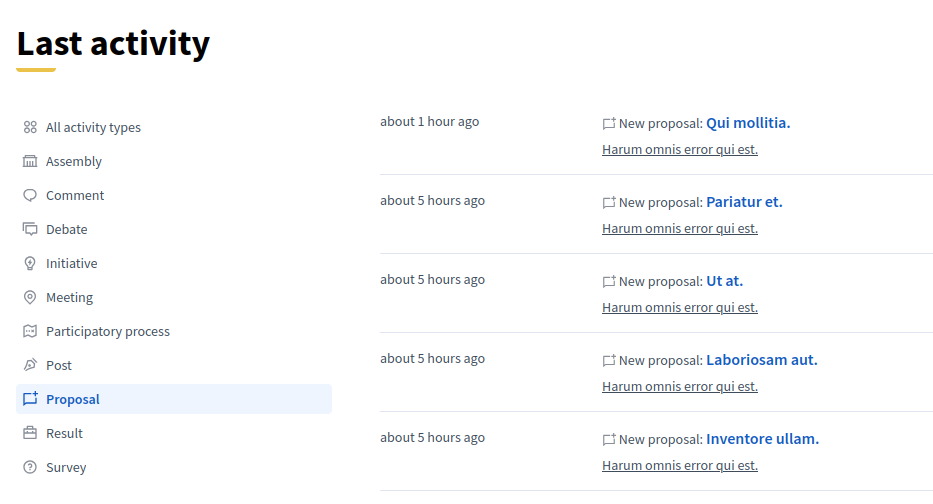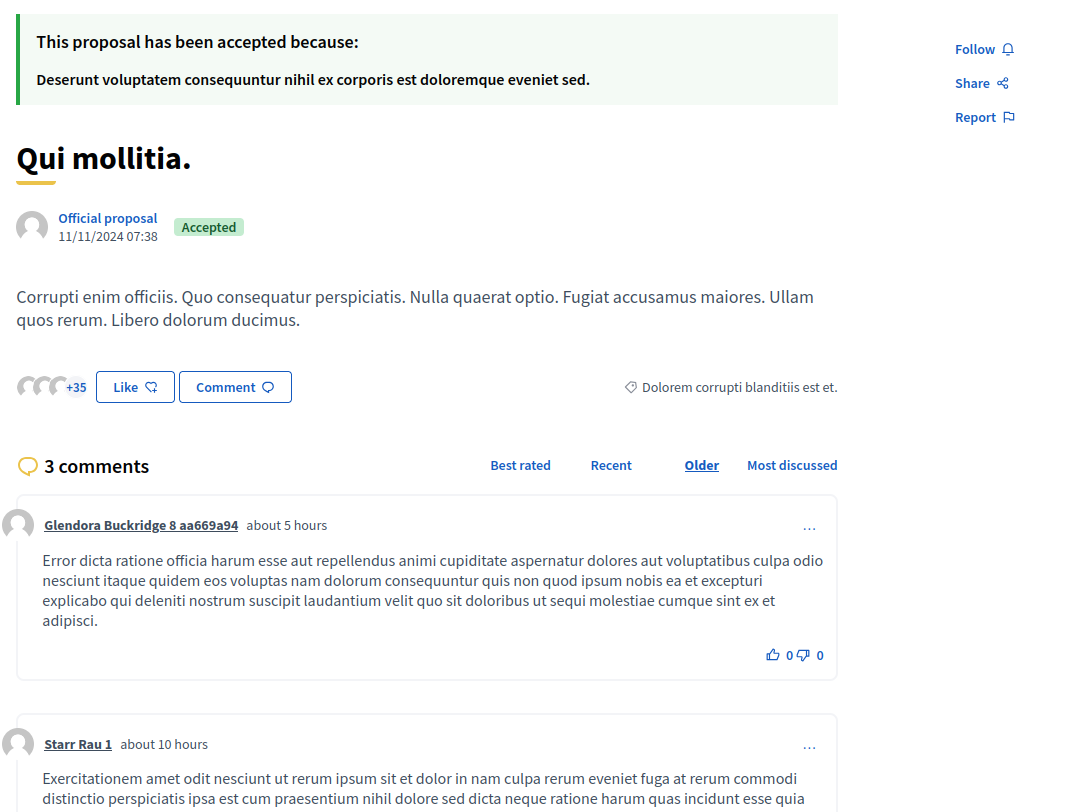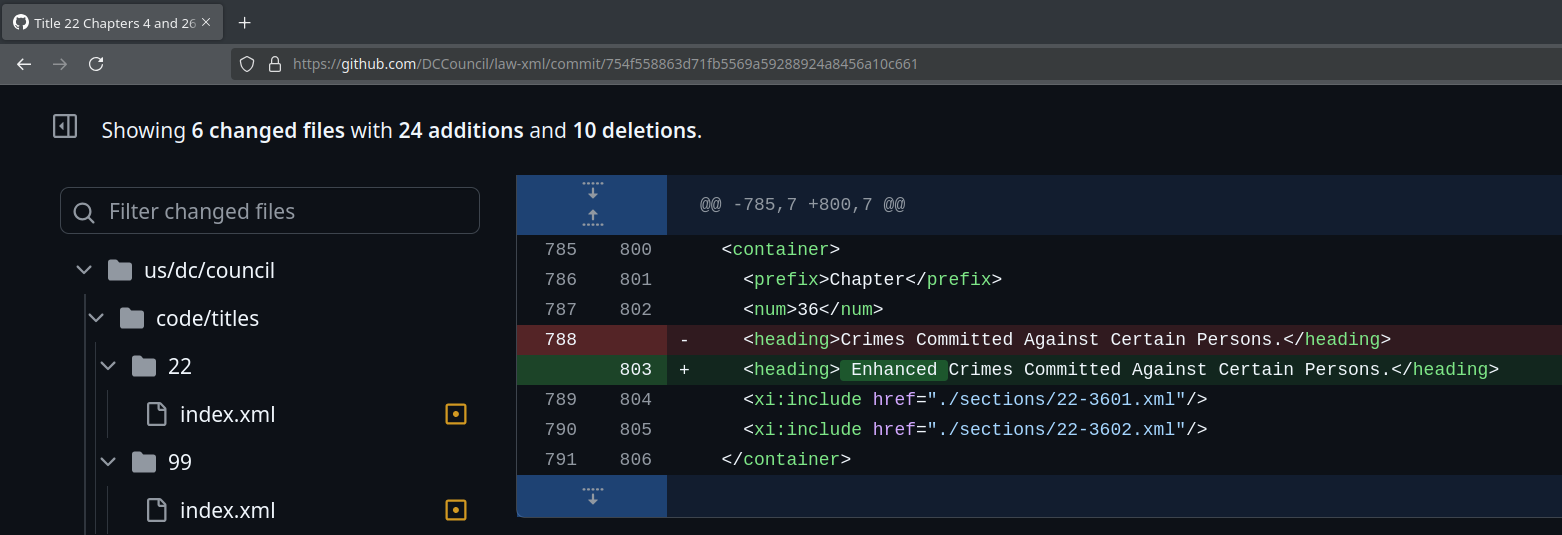The Future of Political Conventions
Published on 2024-11-11 by Stuart Spence
Here's my experience attending the founding convention of the Canadian Future Party (CFP) in November 2024 in Ottawa. Members voted for the first time on policy, leadership, and a constitution. Here I write about procedural problems and I propose modern solutions.
Context
The Canadian Future Party (CFP) officially started in August 2024. They're a socially liberal, fiscally conservative, pro-science, centrist party. "Not left, not right, but forward" as they say. I recommend this 38 minute CBC interview with the founding leader Dominic Cardy. So far the party priorities seem to be housing, immigration, cost of living, electoral reform, tax reform, health, and higher defence spending.
Problems
Depending on your definitions, political movements have been sending delegates to conventions since at least 1774. Robert's rules were first published in 1876 and are still used today to structure many conventions. So in 2024 it's notable that a party with "Future" in its name still uses governance processes created before Canada had electricity.
Thanks to this, here are some of the biggest problems I saw with this convention and the new constitution:
1) In-Person Voting
Voting requires physical attendance. This means that perhaps 19 of 20 Canadians will never get a chance to participate because of time or cost. If you're a single mother in Manitoba or Alberta who cannot travel, too bad. The CFP will never directly accept your votes on the most important party decisions on policy, leadership, and the consitution.
Unless this changes, I expect to see older, retired, and wealthy people controlling the party completely. Just like every other major federal political party and my union.
2) Synchronous Voting
Definitions: A phone call is "synchronous" because both people need to be on the phone at the same time. An email is "asynchronous" because sending and receiving an email can happen whenever people want.
The CFP convention voting was synchronous. Did you need to go to the bathroom? Too bad - you cannot vote and can never vote.
In most cases, synchronous voting is a relic of the past when we had no digital alternatives.
3) Groupthink
I really liked one of the first questions at the convention about anonymous votes to avoid groupthink. Put simply, most people in a group may have an opinion but they never express it because they wrongly think the group has a different opinion. This is a powerful and measured psychological effect, and not a small concern.
There are also other social pressures and anxieties when votes are not anonymous that especially impact neurodiverse folks.
The CFP failed to collect the opinions of its members. Especially if members thought their dissenting opinion was a minority opinion. That's where people just didn't speak up or didn't vote.
4) No Evidence, Little Discussion
Evidence based policy is supposedly a core pillar of the CFP.
Maybe I'm mistaken, but not once was evidence presented to support any resolution. The convention also had little formal discussion because of 19th century time constraints and synchronous discussion.
My feeling is that the main achievement of the convention was not to consolidate expertise and votes. It was to:
- manufacture consent: make members feel like we are unified and consent to what happened
- present a unified voice to the media
- rubber stamp pre-written decisions
In that sense, I feel used and not empowered or represented.
5) Be Fast, or be Quiet
I sat next to a retired family doctor and researcher. When a health related resolution was being discussed, he spent a couple minutes in careful thought and wrote speaking notes then approached a mic. We then ran out of time and he never got a chance to speak. He never went to a mic any other time. The thoughts he wrote down were figuratively and literally thrown in the trash.
The synchronous pro and con microphones with short time limits means we favor nimble people who speak before they think.
Solutions
Centuries ago conventions like this were a great political technology but today we have much better options. Some like Decidim have costs that need assessing. Others are tools that high school teachers use every day for free.
Decidim
Decidim is a "a digital platform for citizen participation". Hundreds of organizations around the world trust Decidim for their democratic processes:
- Barcelona
- NYC
- Helsinki
- French national assembly
- Brazil
- Kakogawa
- Green Party of Canada
- many more
Users on Decidim can start proposals, polls, discussions, track amendments, and more.

Each item has its own page for votes and comments. Here's what an example proposal looks like:

Decidim is free and open source software which means it's free to use, the software has no secrets, and the CFP could run the platform on computers in Canada controlled completely by the CFP for data sovereignty. Decidim is built and maintained by public servants, citizens, and universities all over the world.
If the CFP runs its own Decidim platform on the cloud, infrastructure will cost about $6 a month plus $15 a year for a domain name. There are no licensing costs.
You can try a demo here but know that all the text is gibberish, generated for the demo.
User Stories
Definition: A user story describes a type of person and an action to accomplish something.
Here are some user stories for the CFP made possible by Decidim or other free tools like it.
1) Popular Pro-Con
All resolutions are shared online for at least 2 weeks before a vote.
The chair reads aloud the most highly voted "pro" comment and "con" comment from online members before every resolution vote.
2) Resolution Sorting
All resolutions are shared online for at least 2 weeks before a vote.
Members have 10 stars they can assign to resolutions. They can assign all stars to one resolution, or some stars to many resolutions as they like (cumulative voting). The highest star resolutions are visited first at convention.
3) Amendment Sorting
Like resolution sorting, the first amendments we consider are those voted highest online.
4) Digital Hands
A member wants to raise their hand to vote "yes", so they click a button on a web page in a web browser. They click another button to put their hand down.
At all times, the whole convention can see how many people are raising their digital hand to say "yes" or "no". Optionally, votes could be anonymous.
If we insist on synchronous voting within 30 second windows, digital hands are either expensive (clickers for all) or unfair (must have a device and decent digital literacy). But there are solutions to consider either way.
5) Digital Delegate
A member doesn't know much about health care but their friend does. If the friend votes, they automatically use both votes.
I was able to do this in-person easily (I just copied the doctor's votes). However online I could assign my vote to him and not even have to follow any health care resolutions or amendments.
The doctor becomes my health care digital delegate.
6) Monthly Resolutions
Get rid of resolution voting at conventions. Instead do one resolution and one amendment each month online. Members vote on the most popular one to do next. No delegates, instead all members vote and discuss.
This also helps keep the CFP in the news cycle with regular, major policy updates. It keeps members regularly excited and engaged longterm. No other major federal party does anything like this.
7) Meet with Intention
In-person conventions are not a good way to consolidate expertise and votes. Instead, they're good to build relationships, have informal chats, and inspire members. So do that. Don't pretend we're voting effectively at the convention because we're not. Use face-to-face conventions for what they're good at doing, and only that.
What would a convention look like if its main focus were building relationships, informal chats, and inspiring members?
8) Git
Git is the world's most popular collaboration software to write computer code text files. In 2016 Washington DC started using Git as the authoritative source of all its laws. If this interests you see: How I changed the law with a GitHub pull request . Please reach out to me if you have questions about using git for document collaboration. I'm an educator.
Here's a screenshot of a website using git to show how the title of "chapter 36" was changed in a Washington DC law:

Security
Please reach out to me if you have concerns about security or foreign interference in digital platforms. Otherwise, consider this:
- Trillions of dollars are moved daily with online banking and trading. Digital can be very secure.
- All security can be broken. It's just a question of cost and return on investment (ROI) for the attackers. If cost is much higher than ROI, the system is secure.
- Canada's largest political parties must have far more investment in IT security than startup parties because the ROI is higher.
- Basic security principles and basic human training can achieve an excellent level of security for the CFP today.
My Biggest Concern
Many of these digital-first suggestions should be at the core of the CFP constitution. Digital platforms and software rules should replace most of Robert's rules and delegate powers.
Here's my biggest concern for the CFP.
Political science enthusiasts are comfortable with Robert's rules. They're comfortable with 19th century style delegates and conventions. So when the CFP consulted experts, that's the constitution the CFP got. I fear the archaic constitution adopted this weekend now has a momentum of its own and the CFP will never be a future-first and digital-first party.
Fight?
When raising these concerns with other members at the convention I heard that it's up to me to fight and make positive changes from the inside. There's just one big problem.
I'm tired.
I voted in the leadership races for the LPC, NDP, GPC, and my union. Repeatedly disappointed. I've also attended a couple similar conventions. I'm tired of being so disappointed with these stupid processes everywhere I go. I'm tired of feeling like the only one who sees how stupid this governance infrastructure is.
I feel like a banker in a communist convention. People tell me "Fight! Fight!" Really? Do we really think the banker is going to convince the communists?
Next Steps
I'm not interested in writing hundreds of comments online to persuade the CFP. I'm not interested in attending dozens of ephemeral meetings about these issues. Let's stop talking and just do it.
- Ask every CFP member. Who has the skills to identify, plan, deploy, or maintain these solutions?
- Deploy a private Decidim platform that all members can access. For now this is a trial - no guarantees on data persistence.
- Keep it simple. Do not get fancy with programmers customizing the platform.
- Write a service level agreement (SLA) about maintenance and uptime that we consider acceptable and plan who will do that.
- Require using Decidim as soon as possible as much as possible.
- Create 5-minute videos giving a tour of free web apps that the party should use, explaining and showing how to use them.
If I see significant enthusiasm and I'm not the only technical person to help, I can help deploy something.
Thanks
Wow, you made it to the end! Consider joining the CFP or posting on the CFP subreddit. Thanks for reading.
